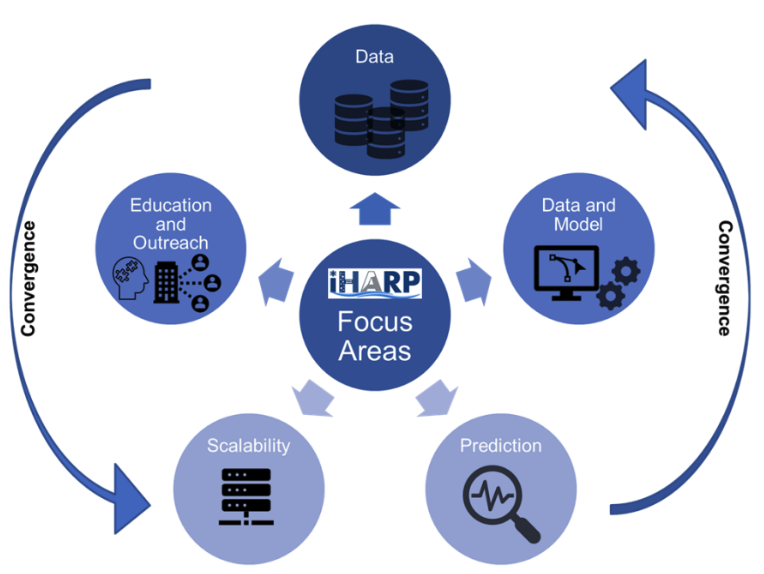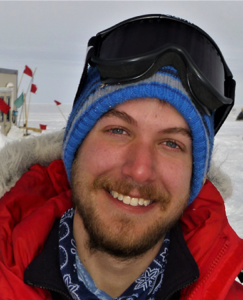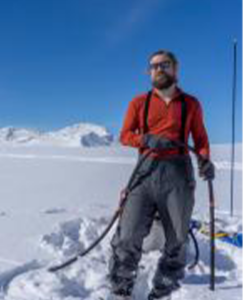iHARP -> Research -> Focus Areas
last updated 2024 May 8
Data Data & Model Prediction Scalability
Education & Outreach
Data
In this focus area, we will investigate convergent data science approaches for fusion of heterogeneous data , reducing noise from our data , annotation via advanced visualization , and advanced auto-annotation techniques with human in the loop . This focus area will prepare our dataset for further investigation of ML and physical models in Focus Area 2 and Focus Area 3.
Team Leads
Team Members
Data & Model
In this Focus Area, we will develop convergent physics informed machine learning method for generating the 3D model of ice bed , tracking the internal layers of ice sheet and integrating them in ice dynamic model , and investigating causal relationship between ice sheets, sea ice and atmosphere.
Team Leads
Team Members
Md Osman Gani
UMBC
Nicholas Holschuh
Amherst College

Aneesh Subramanian
University of Colorado Boulder
Prediction
In this Focus Area we will develop ML algorithms to forecast ice sheet mass loss on a century-scale, extract spatiotemporal patterns in surface mass balance, hydrology, and atmospheric drivers and spatial-temporal pattern mining for data-driven understanding of ice dynamics.
Team Leads
Shashi Shekhar, Co-PI
University of Minnesota
Andy Aschwanden
University of Alaska Fairbanks, Glaciers Group
Team Members
Mark Fahnestock
University of Alaska Fairbanks, Glaciers Group
Mathieu Morlighem, Co-Director
Dartmouth
Vandana Janeja, Director
UMBC
Scalability
In this focus area we will utilize supercomputers to scale up all of our previous algorithms. Utilizing computational power enabled by advanced cyberinfrastructure is necessary to harness the vast and diverse data from polar regions.
Team Leads
Team Members
Education and Outreach
iHARP champions multiple clusters of research-integrated educational initiatives, with specific focus on facilitating cross-disciplinary collaborations, training next-generation multi-disciplinary researchers and engaging the public in scientific inquiry as related to climate change and data science.
Team Leads
Team Members

















